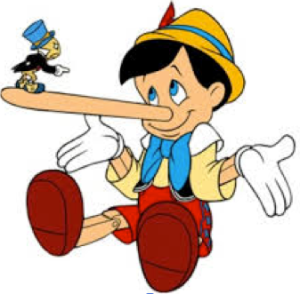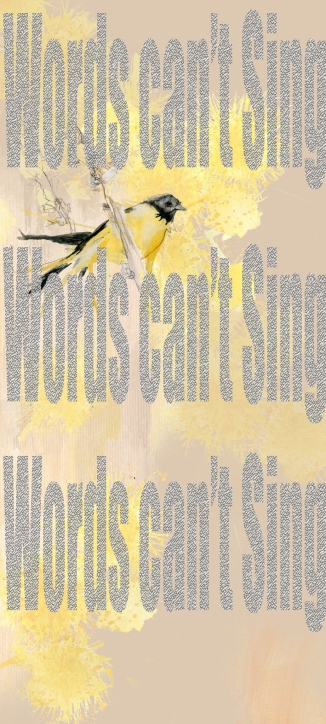An unwieldy term from my past life as a roentgenologist describing the loss of information as an item is copied, or the name of my new punk band (most decidedly spelt “funkshun”)?
Monthly Archives: February 2014
H / T
Notes on Thoughts on Artists and Ownership…
Yes of course artists should get paid, not exploited as an inexhaustible supply of free labour. However, payment and ownership are two different things.
If you are a visual artist and you get paid after creating an image what right do you still hold over that image – the artisan carpenter makes a chair, sells it and she no longer owns the chair. But does she not own the design? Did he invent the chair? Owning the idea of chair is like owning the category of image.
E. O’B.
biological syntax
Written word and spoken word are two distinct modes of expression. WE all respond to the spoken word; in utero we first encounter it, our forming ears awash with biological syntax as our brains develop. Noam Chomsky points out (somewhere – this ain’t an essay) that even babies born deaf still have an innate understanding of language and desire to name and COMMUNICATE, and that grammar itself appears to have a human commonality. Language then may have shaped the evolution of our growing brains, rather than our brains adopting language to EXPRESS their increasingly complex conceptualization. The language function is root, basal, an innate part of what it is to be human.
AN UNBURDENING OF CONSCIOUSNESS
Sarah’s Birds Mash
encoding modes : numeric, alphanumeric, byte / binary, and kanji
ADB
 Whenever I hear someone drop the word ‘project’ it feels a bit suspect. Typically if you display any sort of curiosity about this ‘project’ you’re met with vagueness and pretension. It seemed like half the people I knew in my 20’s had projects coming out their ears, none of which ever amounted to anything. I think the best way to illustrate this is to talk about JK. JK was a guy in our little circle of friends. He was an illustrator of mild talent, had a number of tattoos on the low end of good taste, and couldn’t handle his whiskey. Whenever this guy got a few slugs down him there were tantrums, tears, and broken glass. At one such party he stormed into my room, visibly shaking with anger at some thing I’d said earlier. I sat there and acted all calm which pissed him off even more. After about a minute of matching wills like this I could see we were either going to fight, or have some god-awful heart to heart where we get our real feelings out in the open. I took the bottle of gin from the table, led him to another room, and opted for the latter. We drank some gin and he professed his true love, and eventually he got around to saying it: He wanted to Collaborate with me. We were both artists and he respected me so we were supposed to Collaborate on something. I don’t know what he thought we were supposed to do; he wasn’t in an articulate mood. But in his mind this is what artists did, they collaborated on fucking projects together.
Whenever I hear someone drop the word ‘project’ it feels a bit suspect. Typically if you display any sort of curiosity about this ‘project’ you’re met with vagueness and pretension. It seemed like half the people I knew in my 20’s had projects coming out their ears, none of which ever amounted to anything. I think the best way to illustrate this is to talk about JK. JK was a guy in our little circle of friends. He was an illustrator of mild talent, had a number of tattoos on the low end of good taste, and couldn’t handle his whiskey. Whenever this guy got a few slugs down him there were tantrums, tears, and broken glass. At one such party he stormed into my room, visibly shaking with anger at some thing I’d said earlier. I sat there and acted all calm which pissed him off even more. After about a minute of matching wills like this I could see we were either going to fight, or have some god-awful heart to heart where we get our real feelings out in the open. I took the bottle of gin from the table, led him to another room, and opted for the latter. We drank some gin and he professed his true love, and eventually he got around to saying it: He wanted to Collaborate with me. We were both artists and he respected me so we were supposed to Collaborate on something. I don’t know what he thought we were supposed to do; he wasn’t in an articulate mood. But in his mind this is what artists did, they collaborated on fucking projects together.
Fast forward a few years later I’m with the poet people in New Orleans and everyone was a Dadaist and the thing for poets to do in the bars and the cafes at 3 in the morning was to write a Corpse. Continue reading
E. H.
Do I own this sentence? Can I claim to be its author? Technically I suppose I went through the mechanical process of arranging the symbols that represent the words in the agreed standard code that is used to define modern English in a written format but there’s nothing special about that, is there?.
Admittedly the example sentence isn’t very interesting. It is mundane, formulaic, functional. Why would I, therefore, feel in anyway proprietorial about it? The truth is of course that I don’t. Why would I? It is just an arrangement of symbols on the page in a basic, agreed form of communication, an external manifestation of my internal thoughts composed of passed down alphabetical symbols encoded to contain shared semantic values within a given culture. The process, the vessel, that is language itself, is infinitely more interesting. I don’t even know you and by some magical voodoo I can conjure up ideas, images in your mind. Gorilla! See, I’m doing it right now. Continue reading
Interview with A Legal Minded Mind
Q: What do you understand by the notion of “Collaborative Writing”
A: It’s more than one person writing with one voice. There has to be trust and agreement between all the parties. I don’t really like collaborative writing because I feel it has the potential to dilute “my opinion/writing”.
I am always afraid to do collaborative projects because it isn’t “me” that’s producing a piece of work. It’s some sort of… I don’t know how to put it… It’s not “honest” from my point of view. I don’t think I can be honest as part of a group. There will be an “honest” opinion of the group, but only as the sum of the parts.
The parts cease to matter in a collaborative environment. Everything is about the group, and the negotiated, accepted, “watered-down” piece that the group produces.
Q: Is the notion of collaboration not inherent in law? In writing laws and about laws and so on?
A: It does happen, but it is rare.
Books and articles can be co-written, but the majority are done by a single author. There are “famous” teams of legal writers in Ireland though. Byrne and McCutcheon are the only one I can think of now. Having said that, they wrote “Legal Systems & Methods” which isn’t really a legal text, it’s just an intro to how the legal system in Ireland works.
Q: Ok – what about the making of laws then – are they not formed out of robust argument – which is a form of collaboration ?
A: The way it works now is that someone, the Government, member of the opposition, private citizens, lobby groups, etc. identify an are they believe needs reform and so on.
If the Government agrees they can ask the Law Reform Commission to produce a consultation paper on the topic. That’s where they set out the current law and invite everyone and anyone to make suggestions on how to change it. They review all the letters and so on that they receive for a year or two, then they produce a “Report”. The Government then uses the report to frame new legislation, which is then debated, argued over, changed, etc until everyone agrees it is passable.
The way it works now is that someone, the Government, member of the opposition, private citizens, lobby groups, etc. identify and believe needs reform and so on. If the Government agrees they can ask the Law Reform Commission to produce a consultation paper on the topic.
That’s where they set out the current law and invite everyone and anyone to make suggestions on how to change it. They review all the letters and so on that they receive for a year or two, then they produce a “Report”. The Government then uses the report to frame new legislation, which is then debated, argued over, changed, etc until everyone agrees it is passable. By which time most of the bite is taken out of it, and it’s much weaker that most would like. That’s not always true, of course. Sometimes the LRC never get involved. What get’s debated is a “Draft Bill” which then becomes an “Act” once agreed on.
Q: Is the Power in the Text or the Author of the text?
A: It depends on the text! Stuff produced by the LRC has no voice.
It will list all the people who put the report together, but it only ever says “The Commission recommends…” and so on. There is no individual voice there. You see, draft laws are not really texts you sit down to read like a journal or book. They are technical, and written from the point of view of the Government.
Someone like Alan Shatter, who is the current Minister for Justice has a background in family law/litigation. He is trying to get a bill on adoption for same sex married couples through the Dáil at the moment. He has written so extensively on that area of law that you can absolutely see his opinion in the language and theme of the bill. I think one of his books was hilariously called “Shatter’s Families” or something like that.
Q: In what kind of scenario would you feel that something you had written had your individual ‘voice’?
A: It’s anything I write on my own.
But, I write in so many different ways. When I wrote for law, it was sterile. Factual, logical. Every sentence was backed up with citations. I never use any “self” identification in my legal writing.
Q: What would be an instance of “self” identification?
A: I never say “I” or even the overly used legal expression of “one believes” and so on. You are taught from day one to never include yourself in any legal writing. You are supposed to write as a detached third-party.
Q: Is that not the case in most academic writing?
A: It’s much more strict in law. It goes back to the idea that your opinion does not matter unless you can cite other articles who agree with you.
You should look at some of the legal journals in the library. You can tell straight away that the writing is done in a different way to other academics. You never write for the “common man”. In law you are writing for lawyers, and only lawyers. You don’t care about sharing your opinion with “the public”
Q: Is it really that opinion does not matter unless you can cite other articles who agree with you or more that the nature of the subject has to be contextualized in a particular way?
A: Say for example I write something about an area of law that doesn’t exist yet. It’s not really important until other people start writing about the area I discovered and started to reference me and my work. It is this “acceptance” by my peers which give my writing any weight.
If nobody picks up on it, then that piece of writing isn’t really important. But that’s true of most academic writing. Though there is more room to be a “maverick” in other disciplines
Q: What is a “maverick” the way you just used it?
A: Every now and then someone comes along and “shakes-up the academy” by writing in a new way, expounding new idea, etc. Well, that never really happens in law.
Someone like Lessig* is a good example. Most lawyers don’t like him because he is too different to the accepted norm of lawyers and legal writing.
Q: You’ve mentioned that before. Is he a lesser legal mind?
A: It depends on who you ask. Some lawyers probably just think “stupid liberal hippy!” others think he is a godsend because he has fresh ideas. Others don’t really care. He writes for a limited area of law.
He’s basically only concerned with copyright, so only copyright lawyers will ever really bother reading his work. Many criminal lawyers, immigration lawyers, etc have probably ever even heard of him. Lessig probably sees most of his detractors as “dinosaurs” compared to him. But that’s going to be true in any discipline when someone wants change but the majority is reluctant to change
Q: Would a record of conversations be as damning as a record of the printed word? I am thinking about your earlier comment: “If it was going to be put up anywhere I would prefer to edit them so they sound “more professional” and so on.”
A: The way I have written this would never be acceptable for legal publication. If I wrote like this for a college assignment, I would be lucky to get a pass.
Q: I know, but this is not for legal publication. This was about some points you had made in our fb chat and me asking what you would think if I just took them and presented your points as my own.
A: Well, if you presented it as your own work, I would be offended (unless I really didn’t care about what I wrote). But, I know I could prove you plagiarised me, so I still feel safe writing to you. Basically I know how to show who “owns” the words you will present.
Q: How?
Because there is a history/record of our conversation. I can present the transcripts of these chats and point to the parts of your work which are mine, and demand credit.
That’s the idea, anyway. Even if you change the words but keep the same theme I can say you just reworded my idea and presented it as your own. But because I am the one who made the point in the first place I still own what you have said.
A: This is the current copyright law, basically, right?
Q: Yeah, basically. What you write is yours, and no one can use it without giving you credit.
Q: Would a record of conversations be as important as a record of the printed word?
A: Depends on the conversation. It’s getting there. Now it is not. When I studied law we were told to always find a print version to reference. Websites and stuff like that were not heavily weighted sources, because anyone can put stuff up on the web, but it’s hard to get your opinion published in a journal. In the future online writing will be equally weighted, and will eventually be the only source of information.
But that’s true today. Conversations can be casual or formal. If you have a casual conversation recorded, it mostly provides “colour” to a person, situation, etc. Formal interviews are designed to be informative about a specific topic.
Q: I guess what I am getting at is the question of the written word vs the spoken word. The distinction is less today than in the past. Or is it?
A: Unless you record the spoken word, it is hard to give it any weight. It’s just hearsay.
Q: Because today both easily leave a record.
A: Yeah. It is so easy to record everything these days.
Q: So it’s really about the record, the ‘proof’?
A: Yes. 100%
If I tell you something, and you say it to someone else, I can just say “I never said that!” And then it’s just your word against mine. You can’t ever prove I said anything unless it was recorded, or you have a credible witness that heard me say it.
Q: But even outside of any potentially legal situations – whether we’re talking about copyright or not – the printed word used to carry more weight. But now we could have the same with the spoken word
A: The written word is “gospel”. The spoken word is still seen as too transient to carry the same weight. It’s an old-fashioned distinction. The problem is that people are comfortable with it. They don’t really want it to change.
Q: Even if a talk is formal and given before an attentive audience, it still carries less weight than if that talk is written down.
A: It gives you a bit of freedom.
Q: What gives you freedom? Speech?
A: Yeah. Because, unless it’s recorded, everyone might have a different version of what you said. They won’t be able to say verbatim what you actually said.
As for the freedom…
You will probably have heard people saying things like “Ah yeah, but I only said that in passing. I didn’t mean it really!” So you can get away with saying things with fewer consequences than if you wrote them down.
Q: I am now comparing the recorded speech with the written text – and assuming both are of high calibre.
A: It’s the same as the context though. Someone’s personal diary is different to the academic textbook they wrote.
Q: An academic giving a formal talk vs the written down version of that talk.
A: That’s a talk directed at people. It is a talk given to an audience. It is designed to be weighted.
Q: Yes – my idea is that it is still going to carry less weight
A: But having a chat with a student after a class, or someone having a chat with their friends isn’t designed to carry the same weight as a lecture. It’s all about context. I think you are right. The talk does carry less weight.
Q: And my question is: why? Why does this notion persist when our world has changed?
A: Simply because the accepted social practice is to attribute less weight to it. It is changing, but we are in the minority.
For me the idea that a TED talk should carry less weight that a text version of that same talk is laughable. But I grew up with computers. I didn’t associate computers as something you use at work. I saw them as a piece of the home that facilitated contact with people in the same way a telephone did, and as a teaching and learning tool. Not just something you use to do your job.
Q: Good points
A: Most people in academia, politics, industry, etc are older and a bit more old-fashioned. It will swing around eventually.
W.E.J.B.DL
LLB, LLM, BSc
* Lawrence Lessig is a lawyer specializing in Copyright Law and was one of the founders of Creative Commons.
TheBigSong&Dance










